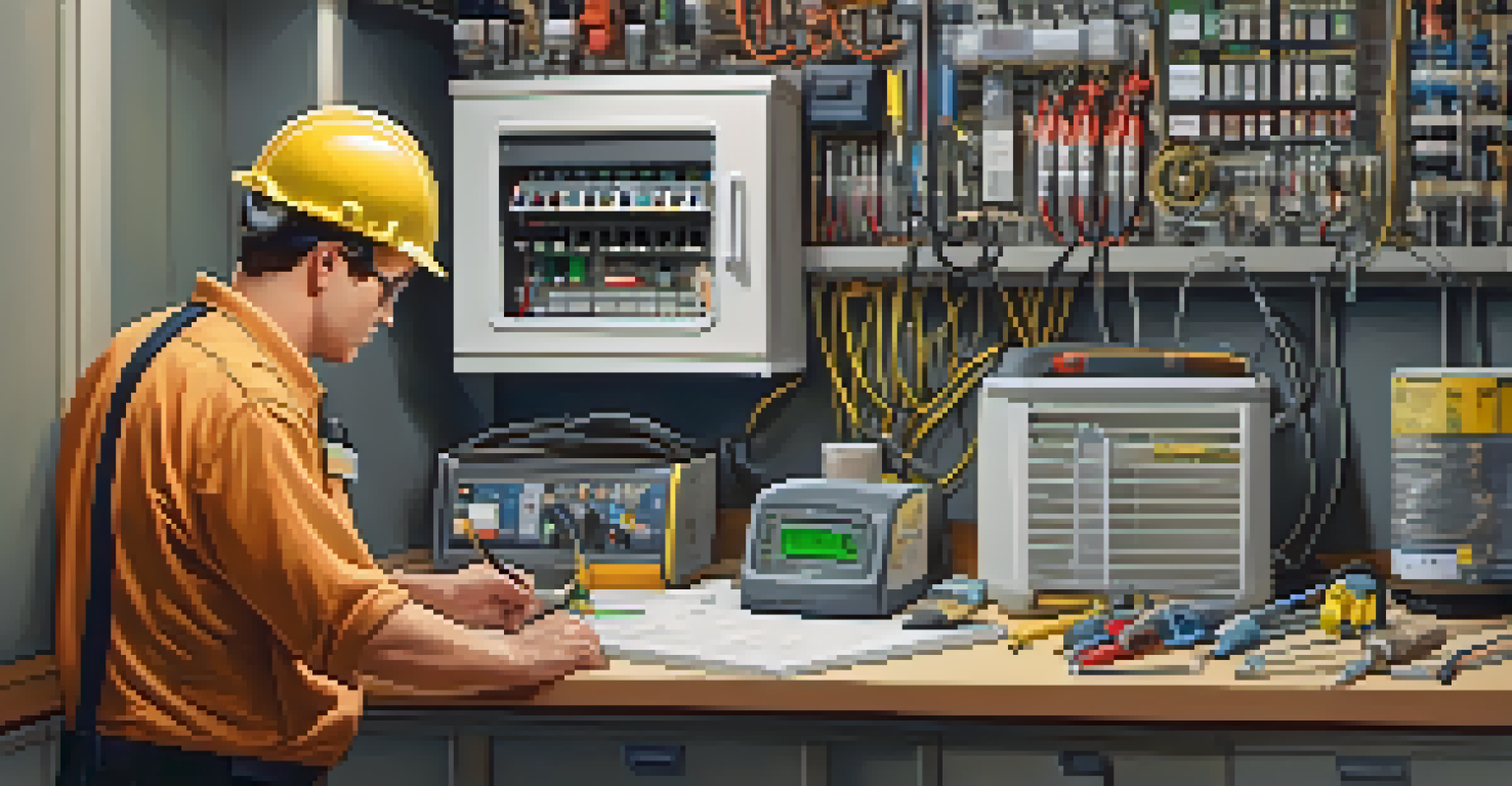Preparing Your Home for Multiple Inspections

Understanding the Importance of Inspections
Home inspections are a crucial part of the buying and selling process. They help ensure that the property is safe and free of major issues. Understanding their importance can help you take the necessary steps to prepare your home adequately.
An ounce of prevention is worth a pound of cure.
These inspections can reveal hidden problems that may not be visible during a casual walkthrough. By being proactive, you can address these issues before they become bargaining chips in negotiations. This ultimately helps you get a better deal, whether you're buying or selling.
Additionally, multiple inspections may be required, such as general inspections, pest inspections, or specialized assessments. Each type has its focus, making it essential to prepare your home for the various aspects that may be evaluated.
Decluttering: A Key Step before Inspections
Decluttering your home is one of the simplest yet most effective ways to prepare for inspections. A tidy space not only looks more appealing but also allows inspectors to easily access critical areas. This includes attics, basements, and utility rooms.

As you declutter, consider removing personal items that can distract from the inspection process. This helps create a neutral environment, allowing potential buyers or inspectors to focus solely on the property itself. Think of it as setting the stage for a performance; you want the home to shine.
Importance of Home Inspections
Home inspections are essential for identifying hidden issues and ensuring a smooth buying or selling process.
Moreover, a clean home can give the impression that it has been well-maintained. This can positively influence the inspector's perspective, potentially leading to fewer flagged issues during the inspection process.
Addressing Repairs Before Inspections
Before the inspectors arrive, it's wise to tackle any minor repairs that could raise red flags. Simple fixes, like leaky faucets or cracked tiles, can make a significant difference in how your home is perceived. Addressing these issues shows that you care about maintaining the property.
The best way to predict the future is to create it.
You might also want to consider hiring a pre-inspection service. This can help identify problems that may not be apparent to you. By addressing these concerns in advance, you can save time and potentially avoid costly repairs later.
Remember, the goal is to present your home in the best light possible. Even if you can't address every issue, showing that you’ve taken care of the easy fixes can go a long way in building trust with potential buyers or inspectors.
Ensuring Accessibility for Inspectors
Accessibility is crucial when preparing your home for inspections. Inspectors need to access various areas, including crawl spaces, attics, and garages. Make sure these spaces are clear and easily reachable to facilitate a smooth inspection process.
In addition to clearing pathways, it’s important to provide access to important systems like plumbing, electrical panels, and HVAC units. If these areas are blocked or hidden, inspectors may not be able to evaluate them properly, which could lead to delays or incomplete reports.
Declutter for Better Inspections
A tidy, decluttered home allows inspectors to easily assess critical areas, leading to a more favorable evaluation.
Think of it as inviting guests over; you want to make them feel welcome and ensure they can explore your home comfortably. Clear access not only speeds up the inspection but also reflects positively on how well you've maintained the property.
Cleaning and Organizing Your Home
A thorough cleaning goes hand-in-hand with decluttering and is essential for making a good impression. Ensure that your home is spotless, including windows, floors, and surfaces. A clean environment can create an inviting atmosphere that inspectors will appreciate.
Don't forget to focus on areas that might be overlooked, like baseboards, light fixtures, and ceiling fans. These details may seem small, but they contribute to the overall perception of your home's condition. An organized and clean home sends a message that it's well cared for.
Additionally, consider organizing documents related to repairs, warranties, or upgrades. Having these readily available can streamline the inspection process and showcase your commitment to maintaining the property.
Preparing Outdoor Spaces for Inspection
While indoor preparations are essential, don't overlook your outdoor spaces. Curb appeal plays a significant role in the first impression, so take time to tidy up your yard. Mow the lawn, prune bushes, and remove any debris to create an attractive exterior.
Inspectors often evaluate the condition of outdoor structures, such as fences, decks, and patios. Ensure these areas are well-maintained and free from hazards. Addressing visible issues outside can provide peace of mind that the property is in good shape overall.
Communicate with Your Inspector
Open communication with your inspector enhances the inspection process and helps uncover potential issues effectively.
Think of your home’s exterior as the cover of a book; it sets the tone for what’s inside. A well-kept exterior invites curiosity and can contribute to a favorable inspection outcome.
Communicating with Your Inspector
Effective communication with your inspector is key to a successful inspection process. Before the inspection, don’t hesitate to share any concerns you have about the property. This can help the inspector focus on areas that matter most to you.
Additionally, be available during the inspection to answer any questions or provide context about repairs or upgrades you’ve made. This openness can lead to a more thorough evaluation and potentially uncover issues you weren’t aware of.

Remember, your goal is to collaborate with the inspector rather than simply being a passive participant. A good relationship can lead to valuable insights that help you understand your home's condition better.